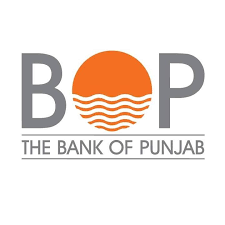Islamabad, Apr 3, 2025: Financial literacy amongst citizens of a country is fundamental to a nation’s progress and development, serving as a cornerstone for achieving key economic and social objectives.
It empowers individuals by fostering sound financial habits and raising awareness of essential financial needs and activities.
Since 2017, SBP has been spearheading financial literacy initiatives, with significant contributions from BOP. Together, they have worked to expand financial literacy across Pakistan, recognizing its profound social, political, and cultural impact.
BOP has conducted numerous classroom and street theater sessions nationwide.
In April 2024, a Financial Literacy Week, under the guidance of SBP, further amplified these efforts.
The President of the Bank of Punjab pledged unwavering support, ensuring the continuation of these programs beyond the current year.
Read More: BOP Exchange inaugurates its new branch at Tricon Center in Lahore
Financial literacy camps and awareness walks were organized to maximize outreach.
These initiatives have successfully educated the public on crucial aspects & Key Components of financial planning, including:
- Budgeting and Savings
- Bank Account Opening and Management
- Debt Management and Responsible Loan Utilization
- Investment Strategies
- Branchless Banking and Digital Transactions (mobile apps, fund transfers, bill payments, mobile top-ups, education fee payments)
- Fraud Prevention
National Financial Literacy Program: Driving Inclusion and Growth
Financial literacy is a powerful tool for promoting financial, economic, and social inclusion in Pakistan, leading to a more prosperous society.
By equipping individuals with the knowledge to budget and save effectively, they can achieve their financial goals.
For development & progress of a country, it is important that all individuals of country should be included in financial activities.
They should have basic knowledge of Financial Products & Services They should be capable of taking benefits from financial services provided by Banks & Financial Institutions.
Financial Literacy is that a common individual is able to know what kind of Product & services are being provided by Banks & Financial Institutions.
The Goal of Financial Literacy is that a common person is able to compare the Product & services offered by different Banks & Financial Institutions, hence he will be able to choose best product or Service for himself.
Financial Literacy is a Key to success & corner stone of a Country.
Despite the financial sector’s crucial role in investment and growth, it has underperformed in its function as a financier and capital intermediary for the private sector. To address this, Pakistan must focus on:
- Promoting digital transaction accounts through bulk payments
- Expanding and diversifying access points for financial services
- Improving the capacity of financial service providers
- Increasing financial awareness and capability
By prioritizing these strategies, Pakistan can unlock the full potential of its financial sector and foster sustainable economic growth.
Branchless banking refers to a banking model that allows customers to access basic financial services without having to visit a physical bank branch
Branchless Banking Facilities improving financial inclusion and providing convenience for customers.
- Account Opening
- Funds Transfers
- Bill Payments
- Balance Inquiry
- Mobile Balance Top-ups
- Government Payments
- Fees payments
What are Tools of Branchless Banking?
Branchless banking relies on various tools and technologies to enable remote access to financial services. Here are some common tools used in branchless banking.
- Mobile Banking- Digi BOP
- Internet Banking
- ATMs
- Agent Networks
- Biometric Identification
Advantages for using Branchless Banking?
Branchless banking offers several advantages for common individuals or groups. Here are some common tools used in branchless banking.
Convenience: No need to visit a physical bank branch, time & effort saving time
Accessibility: Accessible in remote or underserved areas.
Cost-Effectiveness: It often incurs lower transaction costs compared to traditional banking to Customer as well as Banks
Financial Inclusion: It plays a significant role in promoting financial inclusion by providing basic banking services to unbanked or underbanked individuals and Groups.
It allows them to open accounts, save money, make payments, and access other financial services, empowering them economically.
Increased Security: Branchless banking incorporates various security measures, such as encryption, authentication, and biometric identification, to ensure the safety of transactions and customer data.
These measures enhance the security and reliability of the banking services.
Digital banking fraud involves illegal activities using online platforms to steal funds or sensitive information, including phishing, malware, and fake apps, posing significant risks to individuals and financial institutions.
How to Protect Yourself from fraud:
- Be wary of suspicious emails, SMS, or phone calls: Never click on links or provide personal information in response to unsolicited messages.
- Install and update antivirus software: Protect your devices from malware and other threats.
- Use strong, unique passwords: Avoid using the same password for multiple accounts.
- Enable multi-factor authentication: Add an extra layer of security to your accounts.
- Check the URL and SSL certificate of your bank website before online transactions: Ensure you are on a legitimate website.
- Monitor your bank statements and credit reports regularly: Look for any unauthorized activity.
- Report any suspicious activity to your bank immediately: Don’t delay in reporting potential fraud.
- Only use trusted Wi-Fi networks: Cybercriminals can create fake hotspots to steal your data.
- Be cautious about offers of “free PC scans” that pop up when you use the internet: These can be traps.
- Never open suspicious emails or attachments: They may contain malware or viruses.
- Never share your PIN or CVV number with anyone: Not even with bank representatives.
BOP, Partner Content
